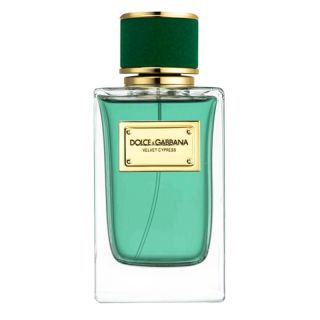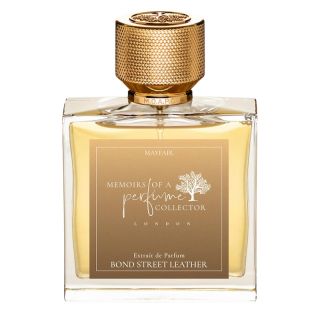
- Lemon
- perfume

Perfume5 ML
Decant

Perfume5 ML
Decant

Perfume5 ML
Decant

Perfume50 ML
Perfume100 ML
Perfume

Perfume5 ML
Decant2.5 ML
Sample

Perfume5 ML
Decant1 ML
Sample

Perfume1.5 ML
Sample5 ML
Decant

Perfume60 ML
Perfume200 ML
Perfume

Perfume50 ML
Perfume30 ML
Perfume

Perfume50 ML
Perfume30 ML
Perfume

Perfume150 ML
Perfume5 ML
Decant

Perfume5 ML
Decant

Perfume5 ML
Decant

Perfume5 ML
Decant

Perfume50 ML
Perfume5 ML
Decant

Perfume50 ML
Perfume5 ML
Decant

Perfume5 ML
Decant

Perfume50 ML
Perfume5 ML
Decant

Perfume5 ML
Decant

Perfume5 ML
Decant

Perfume5 ML
Decant

Perfume5 ML
Decant

Perfume5 ML
Decant

Perfume5 ML
Decant

Perfume5 ML
Decant

Perfume5 ML
Decant

Perfume5 ML
Decant

Perfume50 ML
Perfume5 ML
Decant

Perfume50 ML
Perfume5 ML
Decant

Perfume50 ML
Perfume5 ML
Decant

Perfume5 ML
Decant

Perfume75 ML
Perfume5 ML
Decant

Perfume50 ML
Perfume5 ML
Decant
Lemon perfume belongs to the refreshing and invigorating citrus fragrance family, prized for its clean, vibrant, and uplifting scent. Derived from the rind of the lemon fruit (Citrus limon), lemon essential oil has been used in perfumery and aromatherapy for centuries due to its crisp, zesty character. Its origins trace back to ancient India and China, where lemons were first cultivated and valued for both medicinal and olfactory purposes. As the fruit spread to the Mediterranean and Middle Eastern regions, its fresh, energetic aroma became a staple in wellness and luxury products alike.
In modern perfumery, lemon is used either as a top note or in the heart of citrus-centric fragrances. Its naturally volatile molecules give it an immediate, sharp brightness that awakens the senses, making lemon-based perfumes ideal for summer, sports, and daytime wear. Often paired with bergamot, neroli, or green tea, lemon brings a feeling of cleanliness and energy to the scent. Whether featured in men’s, women’s, or unisex compositions, lemon perfume has gained global appeal, especially in hot climates like the UAE where citrus freshness complements the environment.
Indicators of Quality and Price of Lemon Perfume Products
The quality of a lemon perfume is best judged by the authenticity of the citrus scent, the smoothness of the composition, and its longevity on the skin. A high-quality lemon perfume should smell like freshly peeled lemon zest bright, slightly tart, and juicy without any harsh, synthetic undertones. When paired with complementary notes such as green herbs, florals, or woods, it should transition gracefully from a sparkling opening to a refined dry-down. The most refined lemon perfumes are made with natural lemon essential oil or lemon petitgrain, both of which require careful extraction and blending.
From a pricing perspective, natural citrus oils tend to be more expensive due to their instability and the volume required for production. Perfumes that use cold-pressed lemon oil or Italian Amalfi lemon essence are often positioned in the luxury segment. On the other hand, mass-market lemon fragrances may rely on synthetic lemon-like accords, which are less expensive but also tend to fade quickly. Longevity, especially for citrus scents, is a key factor in determining quality, as lemon is known for its fleeting top-note character. High-end compositions will often anchor lemon with fixatives like musk or amber to extend its wear.
Price of Lemon Perfume Products
Lemon perfumes are available across a wide range of prices, depending on brand, formulation, and concentration. At the entry level (AED 80–200), you’ll find lemon-based eau de colognes, body sprays, or simple eau de toilettes. These often focus on immediate freshness, ideal for gym bags, quick refreshment, or layering with other scents. While these products may not last long, they offer great value for customers who want a clean and energizing scent on a budget.
In the mid-range (AED 250–600), lemon perfumes become more complex and better constructed. Brands like Acqua di Parma, Dolce & Gabbana, Atelier Cologne, and Versace offer lemon-dominant scents with added floral or musky accords for a more sophisticated feel. These perfumes offer better performance and projection, and their bottles often reflect luxury branding. At the premium end (AED 800–1500+), niche brands like Creed, Maison Francis Kurkdjian, and Diptyque craft artisanal lemon scents using high-quality citrus oils blended with rare ingredients for a longer-lasting and more luxurious experience.
About the Price of Lemon Perfume Products Around the World
Globally, the pricing of lemon perfumes follows the typical trends of brand hierarchy and ingredient sourcing. In Europe, where many classic citrus perfumes originate (especially from Italy and France), consumers can find excellent lemon scents from brands like Acqua di Parma or Hermès at relatively accessible prices due to local manufacturing. These perfumes often highlight Mediterranean citrus fruits and reflect a regional affinity for light, fresh scents.
In the Middle East, lemon perfumes are becoming increasingly popular for their daytime usability and fresh appeal in hot climates. However, luxury citrus fragrances from niche houses or designer brands may be priced 10–30% higher in markets like Dubai or Riyadh due to import taxes, brand exclusivity, and packaging preferences. In Asia and North America, lemon perfumes are often marketed for their clean and gender-neutral qualities, with pricing influenced by retail presence and local distribution agreements. Despite regional differences, lemon perfumes consistently remain one of the most in-demand fragrance types globally.
About the Cheapness and Expensiveness of Lemon Perfume
The affordability or luxury of a lemon perfume depends not just on the brand but on the quality of ingredients, concentration, and creative direction. Cheaper lemon perfumes, such as body mists or colognes, are often made with synthetic citrus ingredients that provide a quick burst of freshness but fade within minutes. These are ideal for quick use, layering, or entry-level buyers. They’re especially useful in hot climates like the UAE, where frequent reapplication is common and expected.
More expensive lemon perfumes are typically part of niche or luxury collections that use cold-pressed citrus oils and expertly blend lemon with refined base notes like vetiver, amber, or woods to improve longevity. These scents feel elegant and unique, with a much smoother evolution on the skin. Often, the higher price tag also reflects packaging (handmade bottles, magnetic caps), brand story, and limited distribution. For perfume enthusiasts or customers seeking a signature scent, high-end lemon perfumes are worth the investment due to their quality and memorability.
Quality of Lemon Perfume Products
Quality lemon perfumes are defined by their freshness, brightness, smooth blending, and how naturally the citrus note is expressed. The best lemon perfumes feel authentic like squeezing a fresh lemon in the sun and evolve gently into balanced heart and base notes. They do not feel overly acidic or synthetic, nor do they disappear too quickly. A good lemon perfume might start citrusy, but dry down into something creamy, herbal, or even woody, giving it sophistication and wearability beyond just the first spray.
Premium brands like Maison Margiela’s “Under the Lemon Trees”, Creed’s “Bois du Portugal”, or Atelier Cologne’s “Citron d’Erable” are examples of how lemon can be used artistically to create rich, long-lasting fragrances. These perfumes prove that even a note as familiar as lemon can be elevated into something luxurious when treated with care and creativity. For your Riah customers especially in the Emirates and GCC where hot weather makes citrus scents ideal offering both affordable and luxury lemon perfumes allows you to meet a wide range of preferences without compromising on quality.
















